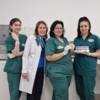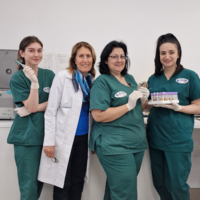
As a healthcare group dedicated to providing the highest quality of care to patients, we have witnessed firsthand the transformative power of minimally invasive surgery (MIS). Over the years, this innovative approach has not only revolutionized the medical landscape but has also significantly improved patient outcomes and experiences.
Redefining Surgical Precision
One of the most significant advantages of minimally invasive surgery lies in its precision and accuracy. The introduction of specialized surgical instruments, such as laparoscopes and endoscopes, allows us to navigate the body with greater control and visibility. The high-definition imaging and magnification capabilities grant us an up-close view of the surgical site, enabling us to perform intricate procedures with unparalleled accuracy.
Minimizing Patient Trauma
Traditional open surgery often involves large incisions, leading to extensive tissue damage and longer recovery times. Minimally invasive surgery, on the other hand, requires only small incisions, reducing trauma to surrounding tissues significantly. As a result, patients experience less pain and discomfort post-surgery, and they can resume their daily activities much sooner.
Faster Recovery and Shorter Hospital Stays
Minimally invasive procedures have revolutionized the recovery process for patients. With reduced trauma and smaller incisions, patients can recover faster than with traditional surgery. In many cases, patients are even able to go home on the same day or within a few days of the procedure. This not only minimizes the burden on the healthcare system but also improves the overall patient experience.
Reduced Risk of Complications
MIS has demonstrated a reduced risk of surgical site infections and other complications compared to open surgery. The smaller incisions lead to less exposure of internal organs to external contaminants, lowering the likelihood of infection. Additionally, the improved precision of MIS minimizes the risk of accidental damage to nearby structures.
Enhanced Cosmesis
Beyond its medical benefits, minimally invasive surgery also offers improved cosmesis. The smaller incisions result in less noticeable scars, which is a significant concern for many patients. This aspect of MIS can significantly boost a patient's self-esteem and confidence during their recovery period and beyond.
Surgeon Well-being
Minimally invasive surgery isn't just beneficial for patients; it also positively impacts the well-being of surgeons. Performing procedures through smaller incisions reduces the physical strain and fatigue often associated with traditional open surgery. Consequently, surgeons can maintain focus and precision throughout the surgery, which is crucial for achieving the best possible outcomes for patients.
In conclusion, minimally invasive surgery is a game-changer in the medical field. Its precision, reduced trauma, faster recovery, and enhanced patient satisfaction make it an invaluable approach to modern healthcare. As MIS continues to evolve and integrate with cutting-edge technologies, we are excited about the endless possibilities it holds for revolutionizing patient care further. Embracing minimally invasive surgery has not only empowered our surgeons but has also transformed the lives of countless patients for the better.









